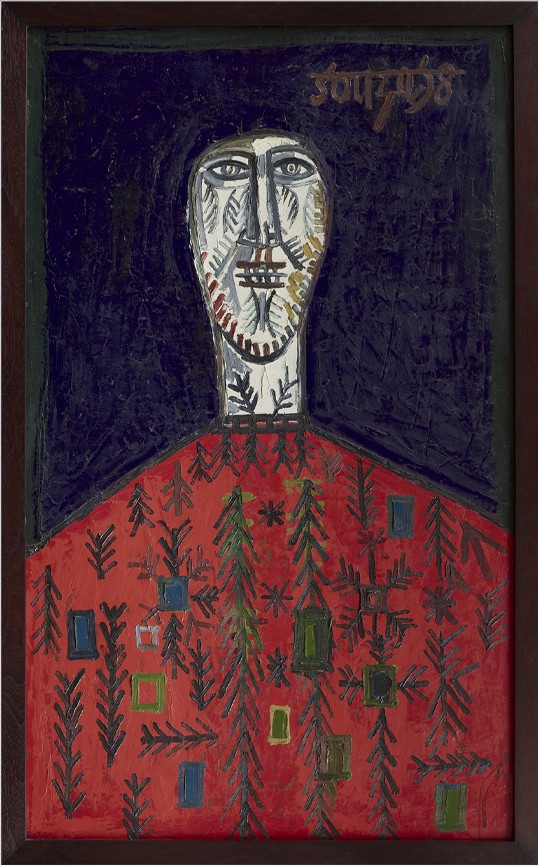Francis Newton Souza ‘s contributions to modern Indian art and his crucial role in the establishment of the Progressive Artists' Group in 1940s have left a lasting impact on the art scene in India.
Souza attended St. Xavier's College in Bombay, but he was expelled in 1939 for drawing obscene graffiti in the restrooms.
Souza emigrated to London in 1949, following several complaints against him to the police from the Indian public for obscenity. He initially struggled to make an impact as an artist in London. His success as an artist took off following the publication in 1955 of his autobiographical essay “Nirvana of a Maggot” in Stephen Spender's “Encounter” magazine. Spender introduced Souza to the art dealer Victor Musgrave. Souza's 1955 exhibit at Musgrave's Gallery One sold out, leading to ongoing success. Souza was one of five artists on the UK shortlist for the 1958 Guggenheim International Award.
Souza was profoundly struck by Picasso’s art and personality, later describing his encounter with the modern master as a defining moment in his career.
Souza was known for his bold and expressive style, often incorporating elements of Cubism and Expressionism into his works. Souza's paintings were characterized by distorted human figures, intense colors, and a sense of angst and rebellion. His paintings were known for their provocative and confrontational nature, addressing themes of religion, sexuality, and the human condition.
Tate Britain paid tribute to Souza in 2005 with its major retrospective “Religion and Erotica”. More recently, Tate Britain’s “All Too Human” exhibition in 2018 featured a dedicated room to Souza’s works.
1958
Oil on board, 40” x 24”
